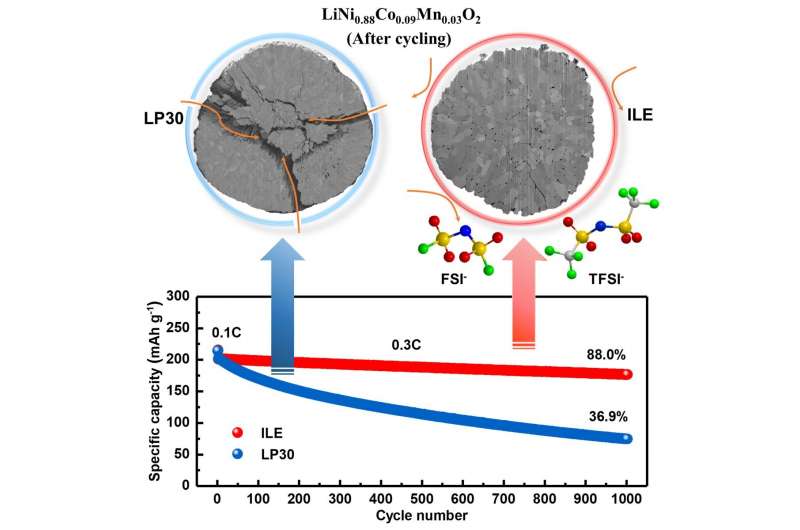The record of lithium metal batteries has been created again! Let’s take a look
Currently, lithium-ion batteries are the most popular solution for mobile power supplies. However, in some applications, it has reached its limit. In the case of electric vehicles, a light and compact vehicle with a wide range is required. Lithium metal batteries may be an option. They are characterized by high energy density, which means they store a lot of energy per mass or volume. Nevertheless, stability is still an issue because the electrode material will react with the traditional electrolyte system.

But a solution to this problem has been found. As reported by Joule, they used a promising new material combination. The cobalt-poor, nickel-rich layered cathode (NCM88) achieves high energy density. The commonly used commercially available organic electrolyte (LP30) is used, but there are still many shortcomings in stability. The storage capacity decreases as the number of cycles increases. Professor Stefano Passerini, director of HIU and head of battery electrochemistry, explained the reason: “In the electrolyte LP30, the particles crack on the cathode. In these cracks, the electrolyte reacts and destroys the structure. In addition, thick moss forms on the anode. Lithium-containing layer.” For this reason, the scientists used a non-volatile, flame-retardant, di-anionic ionic liquid electrolyte (ILE). With the help of ILE, the structural modification of the nickel-rich cathode can be significantly reduced.
88% capacity after 1000 cycles
Result: The lithium metal battery with NCM88 positive electrode and ILE electrolyte reached an energy density of 560 watt-hours per kilogram (Wh/kg)-based on the total weight of the active material. Its initial storage capacity is 214 milliampere hours (mAh g -1) per gram of cathode material. After 1000 cycles, 88% of the capacity is retained. The average coulombic efficiency, which is the ratio of the discharge capacity to the charge capacity, is 99.94%. Due to the high safety of batteries, researchers have taken an important step towards carbon neutral mobility. I believe that in the near future, the storage capacity of lithium-ion batteries will be greatly improved, let us wait and see!
》 》 》 》 》 》 》 》 》 》 》Lithium Ion Battery
Thank you for reading, follow me to learn more
Friendly reminder: Friends who are still worried about the battery can click on the safe and reliable online store to buy: www.batteryforpc.co.uk
